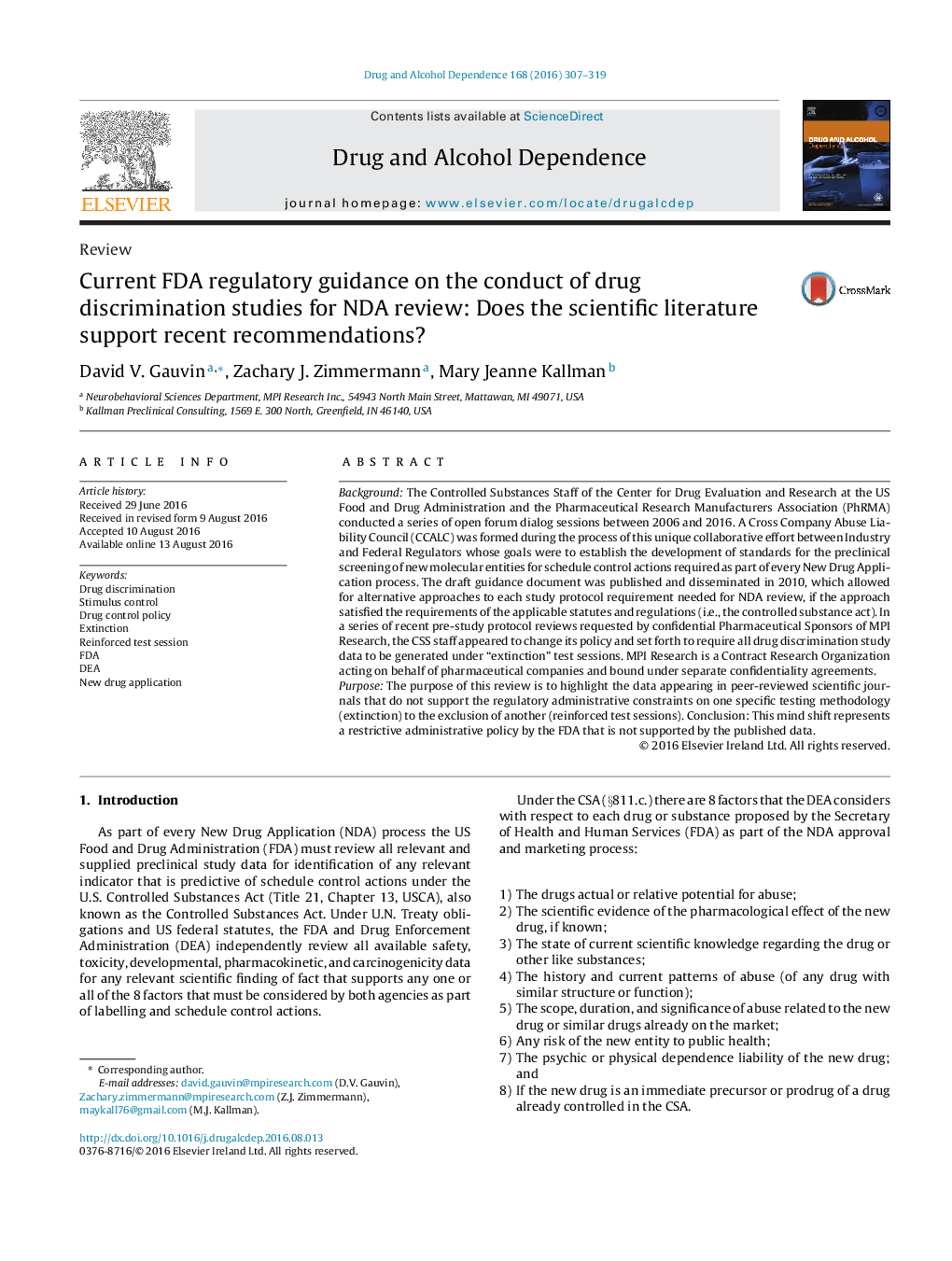| Article ID | Journal | Published Year | Pages | File Type |
|---|---|---|---|---|
| 5120441 | Drug and Alcohol Dependence | 2016 | 13 Pages |
â¢Abuse liability testing has been established in a collaboration between industry & FDA.â¢FDA has changed policies related to test methods in drug discrimination (DD) studies.â¢No meaningful differences between DECs generated or tested under reinforcement or in extinction.â¢There is no relevant scientific support to limit DD studies to extinction tests only.
BackgroundThe Controlled Substances Staff of the Center for Drug Evaluation and Research at the US Food and Drug Administration and the Pharmaceutical Research Manufacturers Association (PhRMA) conducted a series of open forum dialog sessions between 2006 and 2016. A Cross Company Abuse Liability Council (CCALC) was formed during the process of this unique collaborative effort between Industry and Federal Regulators whose goals were to establish the development of standards for the preclinical screening of new molecular entities for schedule control actions required as part of every New Drug Application process. The draft guidance document was published and disseminated in 2010, which allowed for alternative approaches to each study protocol requirement needed for NDA review, if the approach satisfied the requirements of the applicable statutes and regulations (i.e., the controlled substance act). In a series of recent pre-study protocol reviews requested by confidential Pharmaceutical Sponsors of MPI Research, the CSS staff appeared to change its policy and set forth to require all drug discrimination study data to be generated under “extinction” test sessions. MPI Research is a Contract Research Organization acting on behalf of pharmaceutical companies and bound under separate confidentiality agreements.PurposeThe purpose of this review is to highlight the data appearing in peer-reviewed scientific journals that do not support the regulatory administrative constraints on one specific testing methodology (extinction) to the exclusion of another (reinforced test sessions). Conclusion: This mind shift represents a restrictive administrative policy by the FDA that is not supported by the published data.
